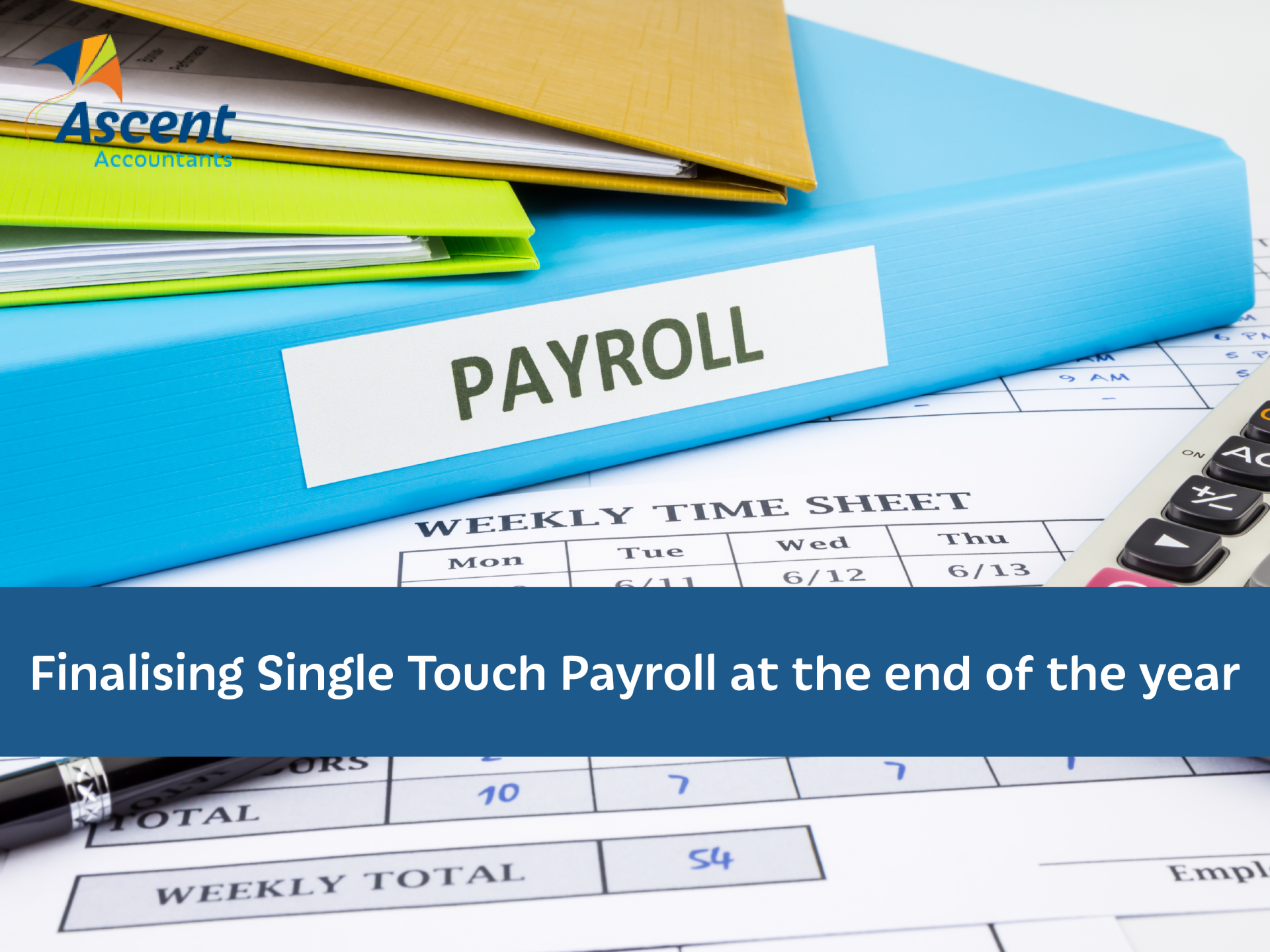Finalising Single Touch Payroll at the end of the year

Number of employees
20 or more employees
If you have 20 or more employees, you should be reporting closely held payees each pay day, along with arms-length employees. A closely held payee is an individual directly related to the entity. For example: family members of a family business, directors or shareholders of a company, or beneficiaries of a trust. The finalisation due date for closely held payees is 30 September each year. An arms-length employee is everyone else.
19 or fewer employees
If you only have closely held payees, the due date for end-of-year STP finalisation will be the payee's
income tax return due date. If you employ closely held payees and arms-length employees, the due date for end-of-year STP finalisation for closely held payees is 30 September. All other employees are due July 14 (now July 28).
A final declaration
You finalise your STP data is by making a finalisation declaration. In this declaration, you provide a finalisation indicator for an employee (including directors, contractors, etc.) as par
lodged by 14 July (or as soon as possible), and indicates that you have fully reported for the financial year for each employee.
It’s important that you make this declaration so that your employees can use accurate information for their income tax return and avoid penalties for not completing their returns.
What you should tell employees
Let staff know they’ll no longer receive a payment summary (now called an “income statement”) from you. Instead, they can access their year-to-date and end-of-year income statement through myGov.
You should also tell them to wait until their income statement is showing as “tax ready” before lodging their tax return. Finally, ask them to check and update their personal details (if necessary) with you and the ATO. Incorrect details may prevent them from seeing their STP information on myGov.
A helping hand
Finalising STP at the end of the financial year is mandatory. If you’re confused about the process or have put this in the “too-hard basket”, reach out to us. Our registered Accountants and tax experts will help you get your finalisation declaration sorted ASAP.
Need help with your accounting?








